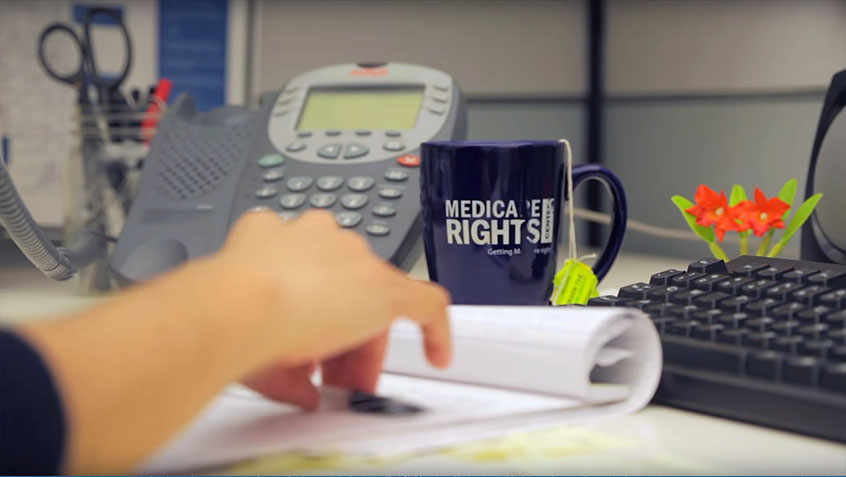Join Us Live for a Discussion on Medicare, Democracy, and the Future of Health Care
Medicare Rights’ Helpline Trends Report Shows Increasing Need for Help Affording Care

This week, we at Medicare Rights released our annual Medicare Trends Report, which features key challenges facing people with Medicare and recommends ways to improve the program. Drawn from our work helping people with Medicare, caregivers, and professionals in 2022, the report includes an analysis of call data from our national helpline, professional email channels, and online reference tool Medicare Interactive (MI). As in prior years, calls about affordability, enrollment, and coverage denials were the most common.
Last year, our staff and volunteers addressed more than 27,000 questions through our helpline and email channels and provided more than 2.6 million answers through MI. We assisted clients in all 50 states, Puerto Rico, and the U.S. Virgin Islands, as well as U.S. citizens living abroad. Most of the beneficiaries who reached out were Medicare eligible due to age (78%), while 17% were eligible due to a disability and 1% due to a diagnosis of End-Stage Renal Disease (ESRD). People who were dually eligible for both Medicare and Medicaid accounted for 20% of all helpline callers.
Affordability
On the helpline, 36% of all calls related to problems affording Medicare premiums, cost-sharing, and Part D prescription drugs. This is a 24% jump from the previous two years and the first time in recent memory that cost concerns outnumbered questions about Medicare enrollment.
Many of these calls related to or revealed eligibility for low-income assistance programs. As we have highlighted before, many people who qualify for this help are not aware of or enrolled in the programs, including Medicare Savings Programs (MSPs), which pay Part B premiums and, in some cases, deductibles, copays, and coinsurance; Extra Help (also called the Low-Income Subsidy (LIS)), which lowers a beneficiary’s Part D prescription drug costs; and Medicaid. Each of these programs offers critical financial assistance, which in turn allows beneficiaries to afford their coverage and care, as well as other basic services that may otherwise be out of reach.
In our policy recommendations, we recommend increasing eligibility, easing enrollment, and maximizing outreach to boost participation in these vital programs. Additionally, we urge structural changes to improve Medicare affordability, including the creation of an out-of-pocket cap for original Medicare and adequate funding for State Health Insurance Assistance Programs (SHIPs) that provide one-on-one counseling to people with Medicare, including to help them evaluate their coverage options and apply for available assistance.
Enrollment
Medicare enrollment was again a top trend, comprising 26% of all calls. Frequent questions included how to enroll in Medicare when first eligible, how to qualify for Special Enrollment Periods (SEPs), and when to use the General Enrollment Period (GEP). Often, clients were confused about enrollment rules and timelines, where to find clear information, and the consequences of delaying enrollment.
Historically, enrollment was the most common topic for calls to our helpline. Recent improvements to the enrollment process may have helped ease some enrollment concerns, but more must be done to help people connect with their coverage. We continue to urge policymakers to start sending a notice to people who are approaching Medicare eligibility to ensure they are aware of their rights and obligations. We also support reconsideration of Medicare’s late enrollment penalties, better relief for those who make enrollment mistakes, and higher quality tools to support beneficiary decision-making, including when choosing between original Medicare and Medicare Advantage (MA) and selecting a Part D drug plan.
Denials and Appeals
A third key trend, denials and appeals, represented 29% of all calls. A majority were from MA enrollees experiencing care access issues, including uncertainty about covered services, billing problems, and coverage denials. Challenges navigating the complex MA and Part D appeals process were also prominent.
We urge policymakers to curb the burden of prior authorization and inappropriate denials of care, streamline cumbersome appeals processes, improve data and transparency, and standardize and improve supplemental benefits, including by expanding such benefits to people with original Medicare.
Medicare Interactive engagements show a similar pattern. The most common MI section visited was “Medicare-Covered Services,” with 965,468 visits. “Medicare Health Coverage Options,” “Medicare Basics,” and “Cost-Saving Programs for People with Medicare” also ranked highly.
These trends show continued and increasing needs for better affordability, better enrollment, and better access to care within the Medicare program. Medicare is a lifeline for millions of older adults and people with disabilities, and we will continue to pursue improvements to ensure its stability and value to beneficiaries for decades to come.
Read our Medicare Advantage 101 series.
Fall open enrollment is arriving soon! In addition to the trends report, we also released our annual 2023 Guide to Medicare Open Enrollment, which includes a list of upcoming changes, expert advice, and related issues of interest to people with Medicare, plus consumer-friendly resources.
Show Comments
We welcome thoughtful, respectful discussion on our website. To maintain a safe and constructive environment, comments that include profanity or violent, threatening language will be hidden. We may ban commentors who repeatedly cross these guidelines.
Help Us Protect & Strengthen Medicare
Donate today and make a lasting impact
More than 67 million people rely on Medicare—but many still face barriers to the care they need. With your support, we provide free, unbiased help to people navigating Medicare and work across the country with federal and state advocates to protect Medicare’s future and address the needs of those it serves.
The Latest
Most Read
Add Medicare to Your Inbox
Sign up to receive Medicare news, policy developments, and other useful updates from the Medicare Rights.
View this profile on InstagramMedicare Rights Center (@medicarerights) • Instagram photos and videos









